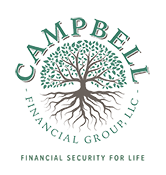Weekly Update – 11/13/2024
Start Early with These Practical Steps to Strengthen Your Financial Plan for the New Year
As 2025 approaches, now is an ideal time to review your finances and set goals that align with your long-term vision. Taking proactive steps early on can help you establish habits that make it easier to reach your objectives. This article will outline practical financial resolutions for 2025 to start implementing today, giving you a head start on building a solid financial foundation for the coming year.
1. Set Clear Financial Goals
One of the most impactful financial resolutions for 2025 is to set clear, measurable financial goals. Whether it’s saving for a down payment on a house, building an emergency fund, or planning for retirement, defining your goals now gives you a road map for your financial journey.
Break down your goals into short-term (3-6 months), mid-term (1-3 years), and long-term (5+ years) to make them manageable. For instance, if your long-term goal is to retire comfortably, your short-term focus might be to increase contributions to a retirement account, while a mid-term goal could be to pay off debt. By breaking goals into smaller steps, you can make consistent progress.
2. Review and Adjust Your Budget
Budgeting is fundamental to any financial plan, and it’s an excellent place to start when setting financial resolutions for 2025. Reviewing your current budget lets you identify areas where you may be overspending or where you could save more. Take time to review your expenses and income, and look for opportunities to reallocate funds toward your financial goals.
For example, consider adopting the 50/30/20 rule, which suggests allocating 50% of your income to necessities, 30% to discretionary spending, and 20% to savings or debt repayment. Adjusting your budget with this approach or one that suits your lifestyle may help create more financial stability in 2025.
3. Build or Strengthen Your Emergency Fund
Another important financial resolution for 2025 may be to build or strengthen your emergency fund. Unplanned expenses—whether medical bills, car repairs, or sudden home maintenance—can disrupt your financial plans if you’re not prepared. An emergency fund acts as a buffer and provides the flexibility to manage such situations without resorting to debt.
If you don’t have an emergency fund, aim to save at least three to six months’ worth of living expenses. If you already have one, consider adding to it or reviewing whether the amount saved still fits your needs given inflation and changing circumstances. Setting up automatic transfers to a dedicated savings account can help you build this fund consistently over time.
4. Assess Your Debt and Develop a Repayment Strategy
Paying down debt is a common goal, and incorporating it into your financial resolutions for 2025 can significantly impact your financial health. Start by listing all your debts—credit cards, student loans, mortgages, and other liabilities—along with their interest rates and balances. Understanding the full picture helps you prioritize which debts to tackle first.
Two popular debt repayment strategies are the debt avalanche and debt snowball methods. The debt avalanche focuses on paying off the highest-interest debts first, which can save you more money in the long run. The debt snowball method, on the other hand, emphasizes paying off the smallest debts first, giving a sense of accomplishment and motivation to keep going. Choose the method that best aligns with your situation and goals.
5. Review and Update Your Investment Strategy
For those with investment portfolios, another key financial resolution for 2025 is to review and, if necessary, adjust your investment strategy. Consider whether your current asset allocation aligns with your risk tolerance, time horizon, and financial goals.
If you’re still building your retirement savings, look into maximizing contributions to tax-advantaged accounts like IRAs or 401(k)s. If you have extra funds to invest, think about diversifying your portfolio to spread risk across various asset classes such as stocks, bonds, or real estate. Staying informed about market trends and consulting with a financial professional can help you make informed decisions tailored to your financial needs.
6. Plan for Major Life Events
As you set your financial resolutions for 2025, think ahead to any major life events that might affect your finances. Whether you’re planning a wedding, buying a home, starting a family, or preparing for retirement, these events often come with significant costs. Planning for them in advance can reduce financial stress and help you prepare more effectively.
For example, if you’re considering purchasing a home in 2025, begin researching current housing markets, building up your credit score, and saving for a down payment. Likewise, if retirement is on the horizon, revisit your retirement plan and adjust your savings or investment strategies to align with your target retirement date and income needs.
7. Implement Tax Planning Strategies
Tax planning is another important component of setting effective financial resolutions for 2025. As tax laws and regulations can change, staying informed allows you to take advantage of deductions and credits that may apply to you.
Evaluate your tax situation before the end of the year to see if there are opportunities to lower your taxable income. This could involve contributing to a retirement account, making charitable donations, or utilizing tax-advantaged accounts such as Health Savings Accounts (HSAs). If you’re unsure of which strategies might work for you, consulting with a tax professional may help you identify suitable tax-saving opportunities.
8. Set Up Regular Financial Check-Ins
To stay on track with your financial resolutions for 2025, it’s important to set up regular financial check-ins. Scheduling a monthly or quarterly review of your budget, savings, and overall progress allows you to make timely adjustments as needed. Life changes, market fluctuations, or unexpected expenses can all impact your finances, so it’s vital to revisit your plan periodically.
During these check-ins, review your spending habits, evaluate whether you’re on target with your goals, and adjust your strategy based on your current situation. Establishing this routine helps create financial awareness and allows you to adapt your plan throughout the year.
9. Prioritize Retirement Planning
If you haven’t done so already, incorporating retirement planning into your financial resolutions for 2025 is crucial. Whether you’re just beginning to save or are nearing retirement age, setting up a detailed retirement plan can help clarify your financial needs for the future.
Consider your desired retirement lifestyle, including where you want to live, your health needs, and how much income you’ll need annually. Based on these factors, calculate your savings target and create a timeline for reaching it. Exploring different retirement accounts, investment strategies, and potential sources of income, such as Social Security, can help you build a more comprehensive plan.
10. Stay Informed and Educated About Personal Finance
Finally, an effective way to maintain your financial resolutions for 2025 is by continuously educating yourself about personal finance. Staying up-to-date on financial news, tax changes, and investment opportunities allows you to make informed decisions throughout the year.
Reading finance blogs, attending webinars, or taking courses can expand your knowledge and equip you with the tools to navigate the financial landscape more effectively. The more informed you are, the better equipped you’ll be to adjust your plan as needed and work toward your goals.
Are You Ready to Make Savvy Financial Resolutions for 2025?
Preparing for 2025 with strategic financial resolutions sets the foundation for a more organized and focused year. From building emergency funds and managing debt to optimizing investments and tax planning, these resolutions help you create a financial plan that aligns with your goals and life events. By starting early, you can develop habits that build toward long-term financial stability.
If you think you or a family member would benefit from our team, contact our office by calling 865-470-8584 or 423-239-6420 to schedule a no-obligation discovery call.

